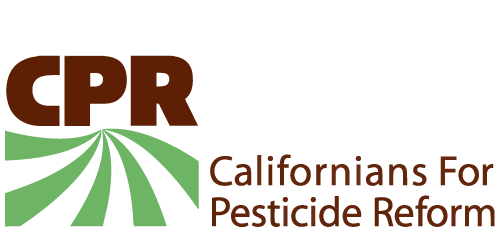June 30, 2020
Director Val Dolcini
via email val.dolcini@cdpr.ca.gov
Dear Director Dolcini,
Thank you for meeting with us on June 11 to discuss the need to establish the right to know in advance about nearby hazardous agricultural pesticide use in California. As you heard, the accelerating demand for this information is widely shared by community members, beekeepers, organic farmers, public health professionals, and all those with a desire to protect human and environmental health. We were gratified by your willingness to listen to our testimony and your stated desire to work with us toward a statewide notification system.
While the call for notification has been building for years, the current Covid-19 emergency has dramatically raised the stakes by highlighting public health issues relating to essential workers, vulnerable communities, respiratory health impacts, and entrenched patterns of environmental injustice. In your guidance letter dated May 7, 2020, DPR acknowledged that “health risks and vulnerabilities are heightened, given the growth of the COVID-19 pandemic,” and that “enhanced transparency concerning pesticide applications that occur near homes and schools is a top priority for the state.” For those living on the frontlines of agricultural pesticide exposure, there has long been a crisis of unseen threat to life and health. But unlike the virus that causes Covid-19, pesticides remain a hidden threat only by virtue of a deliberate set of policy choices. We believe our state can and must remedy this.
Publicly Posting Notices of Intent on CAC Websites:
The CPR coalition requests that DPR instruct County Agricultural Commissioners to post all Notices of Intent to use Restricted Material pesticides publicly and prominently on their websites upon receipt, along with approvals and denials. Posting NOIs on CAC websites is a low-cost, low-resource step, providing access in advance to information CACs already have. Most importantly, this is the critical step toward fully transparent, comprehensive and accessible notice. We agree that NOIs, as they are currently constituted, are not sufficiently user-friendly. The forms are restricted to English, are not in an immediately accessible format, and do not provide all of the information community members want.. But these shortcomings should not justify further delay in giving the public basic access to this critical information. There will be many more allies and partners to help build a system that is truly accessible to all once the basic information is public.
We regard their publication as the necessary first step toward accountability and transparency, that will also help build community trust in the process. It is a crucial step, but only the first step, toward a more robust and accessible notification system.
The State, Not Counties, Must Establish the Right to Know:
This is the time when DPR must step up to exercise courageous leadership in accordance with your department’s primary mission “to protect human health and the environment”. As you know, we have tried in good faith to work with County Agricultural Commissioners in Monterey and Kern to establish local notification pilot programs. In Monterey, the CAC has refused to work with our local coalition on expanding the limited fumigant notification pilot project beyond 10 schools in northern Monterey County. In Kern, the CAC has openly and publicly defied the order of two state agencies to work with the community on a comprehensive notification pilot for the town of Shafter. He has made clear that he cannot stand alone on an issue that is certain to be vehemently opposed by local agricultural interests. As a matter of political reality, CACs are simply too vulnerable to pressure from the dominant local industry, and serve at the pleasure of County Boards of Supervisors, who themselves may be equally beholden to agricultural interests.
It is clear to the coalition that state-level leadership is necessary. We believe that you have the authority to order NOIs to be made public without a regulation. You could accomplish this under your existing authority.
Language and Technology Access:
While we understand that the pandemic has taxed all of our abilities to connect, we urge DPR to take immediate steps to resolve the technological and language access difficulties that marred our June 11 meeting, and to ensure that simultaneous interpretation is available in future meetings. We also ask that interpreters be familiar with the interpretation technology and be prepared to walk community members through how to access it. Despite the best efforts of our organizing director Sarait Martinez during the meeting to provide full access to the testimony without taking up too much additional time, the monolingual Spanish speakers on the call were rightly frustrated by all that was missed.
It’s increasingly clear that the current conditions imposed by the Covid-19 pandemic will likely prevail for many more months, and that extra effort must be made to ensure seamless participation. We also hope that DPR will take the opportunity to expand remote and linguistically-appropriate access to its processes across our large state for the long term.
Next Steps:
For those living with chronic pesticide exposure in California’s most impacted communities, the time to act is now. Every day we wait is another day communities are unable to protect themselves. We respectfully request 1) a written response to this letter by the end of July, and 2) a follow-up meeting by the end of August so that we can make progress toward our shared goal.
Thank you for your attention to this urgent environmental justice matter.
Sincerely,
Jane Sellen and Sarah Aird, Co-Directors
Cc:
Jared Blumenfeld, Julie Henderson, Yana Garcia, Christine Hironaka
